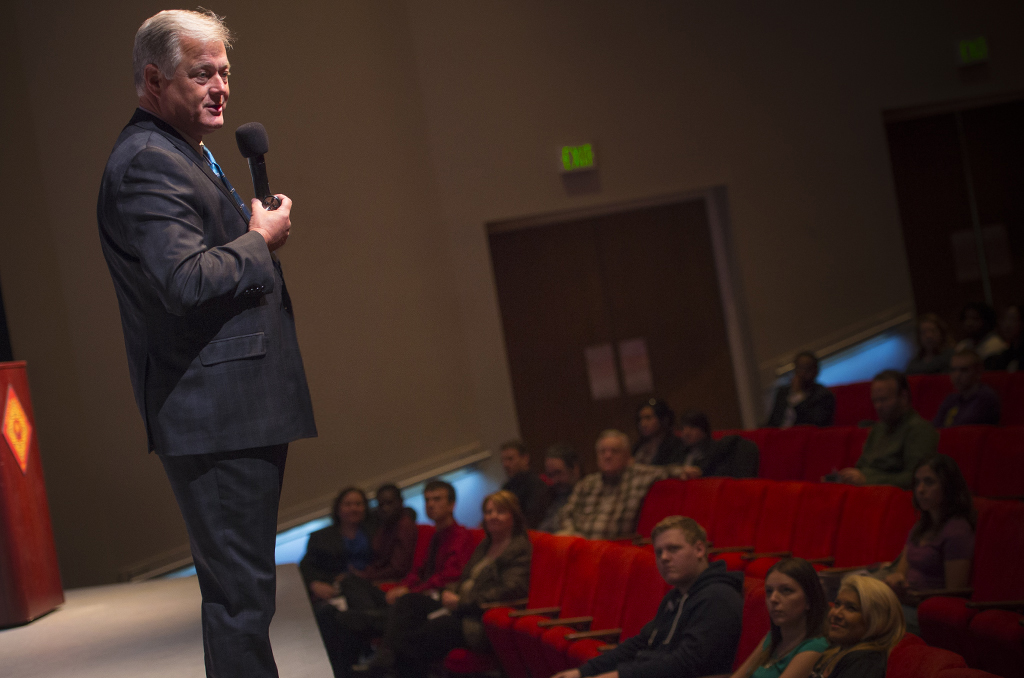If you’re the kind of person with “blazing curiosity,” chances are that you’ve got the right stuff to become a research scientist.
“You’ll wake up in the middle of the night, wanting to know the answer to a question. You’ll read books that cause people to say, ‘You’re crazy to read that stuff,’ ” Dr. Sandy Shugart, Valencia College’s president, told a group of honors students and members of the East Campus Student Research Community on Thursday, Jan. 24. Speaking before more than 80 students and faculty members at the East Campus Performing Arts Center, Shugart told them that if they decided to pursue a career in scientific research, they’ll discover a fascinating career — and an engaging life.
Even students who don’t become scientists, however, can learn to think like researchers. “Research isn’t just a tool; it’s a way of engaging, of asking better questions,” Shugart said.
As a freshman in college at the University of North Carolina, Shugart said he didn’t have a particular major or career in mind. Instead, he focused on figuring out the answers to the questions and issues that intrigued him. The question forefront in his mind, he said, was basic: “How do we know the ‘truth’ is true? That question grabbed me when I was 18.”
Inspired in part by Jacob Bronowski’s 13-part BBC documentary series, “Ascent of Man,” — in which Bronowski traced the history of civilization through man’s understanding of science — Shugart decided to pursue chemistry.
“I did not go to college to get a job. I went, hoping to avoid it altogether,” he told the audience. “I became a chemistry major — but I should have become a philosophy major.”
Along the way, he gravitated toward thought-provoking books such as Lewis Thomas’s “Lives of a Cell,” Bronowski’s “Science and Human Values” and anthropologist Loren Eiseley’s “The Immense Journey.” And, like many college students embarking in their own career paths, Shugart’s route was meandering: Though he started in chemistry, he ended up in higher education.
Although he never became a research scientist, Shugart learned the basic tools of a research scientist: observation, awareness of your own biases, the ability to find patterns in data, understanding outliers, generating hypotheses, how to test hypotheses.
It may sound boring, but he says it’s essential, he told the students, many of whom are students in Valencia’s Seneff Honors College, and are interested in participating in research projects as undergraduates.
“If you’re serious about research, you’ll put in the hours of drudgery,” he said. Learning to play a musical instrument may be tedious in the beginning, he noted, but allows musicians to play wonderfully complex music later on.
And for students who aren’t quite sure what majors or careers to pursue, Shugart offered words of encouragement.
“Wandering,” he noted, “is an important part of wondering.”

Comments are closed.